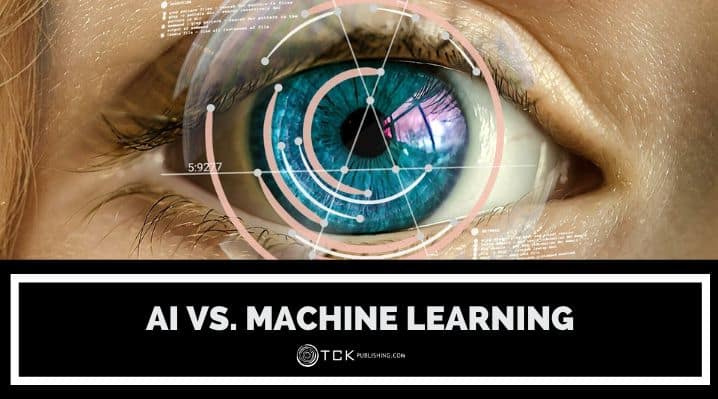
As technology advances, our world undergoes profound changes. Naturally, as new technologies appear, many buzzwords are thrown around with no thought.
Two of these words are AI and machine learning. However, while they are used interchangeably, they have meaningful differences you ought to know.
What is AI?
Put simply, artificial intelligence (AI) is a broad field dedicated to developing intelligent machines that mimic human intelligence and cognitive functions. It can do human tasks such as reasoning, problem-solving, and decision-making through analyzing patterns and predictions.
It’s not yet at the level you’d see in science fiction, where AI has consciousness, emotions, and self-awareness. However, many are rapidly working to get to that point.
It is also becoming an essential part of practically every industry that employs technology. From collecting data to running entire systems, people are testing the applications of AI.
What is machine learning?
Machine learning (ML) is a subset of AI. It focuses on developing algorithms and models that allow computers to learn from and make decisions based on the data they are fed. Think of it as teaching computers to learn from experience.
Their performance improves over time. As you train them with more data, they make better decisions and minimize errors. Structured data (quantitative data that is easily decipherable) and human intervention are required to develop a model.
An advanced version of ML is called deep learning, which deals with unstructured data (qualitative data that isn’t easily processed) without human intervention.
So what’s the difference?
The difference is that AI is an umbrella term used to define the development of a machine to think, act, sense, and behave like a human. Machine learning is one of its subfields and an application of AI, where machines are trained to learn from data and perform specific tasks.
ML has a narrower scope that ultimately contributes to AI’s goal. It’s a case of all ML is AI but not all AI is ML.
Knowing this difference allows you to be more effective in your work. After all, these tools are only as good as their user.
Applications of AI
Artificial intelligence has a wide range of applications. Take digital marketing, for example, where machine learning models can be trained to analyze user behavior, predict trends, and segment customers into similar groups.
What the model learns can lead to more effective ad campaigns, product development, and personalized recommendations. For example, the recommendations you get from social media are powered by ML algorithms that learn from your preferences over time.
In writing, a model can be easily trained to check grammar, style, and tone leading to AI-powered tools such as Grammarly and ProWritingAid. Some AI tools can also generate written content and assist with SEO optimization, such as ChatGPT, Surfer AI, and Copy.ai.
This applies to many other industries, where AI can be integrated to assist in specific tasks that range from simple to complex.
Benefits of AI and ML
One key benefit of AI and ML is efficiency. By automating tasks that would otherwise require human input, both can save you time and resources. This is especially great for tasks that are repetitive or need precision and skill.
ML, in particular, can analyze massive amounts of data and make predictions with a high level of accuracy. This is quite useful in fields that need accurate results.
Detriments of AI and ML
Despite their benefits, AI and ML also pose plenty of challenges. One major concern is job displacement, as both can potentially replace human workers.
And while they can be accurate, they’re also not yet at a level where accuracy is guaranteed. Many users of AI-powered tools report that some results are inaccurate or false. This phenomenon is called AI hallucination.
There’s also the problem of bias. As ML models are trained on human data, the biases contained within said data can lead to unfair or discriminatory outcomes.
Conclusion
So while artificial intelligence and machine learning are related concepts, they are not the same. AI is a broader field where machines do tasks that require human intelligence. ML is a subset of AI that focuses on teaching computers to learn from data.
As technologies develop, it is important to learn the distinction between similar disciplines. This allows you to narrow down your expertise and navigate an increasingly complex technological landscape.
What do you think about AI and ML? Share your thoughts below!
If you enjoyed this post, then you might also like:
- Adapting to AI: How to Futureproof Your Writing Career
- AI-Generated Books: Are They the Future of Literature?
- How to Enhance Your Creativity Using AI
- How to Use ChatGPT and Maximize It

Cole is a blog writer and aspiring novelist. He has a degree in Communications and is an advocate of media and information literacy and responsible media practices. Aside from his interest in technology, crafts, and food, he’s also your typical science fiction and fantasy junkie, spending most of his free time reading through an ever-growing to-be-read list. It’s either that or procrastinating over actually writing his book. Wish him luck!
